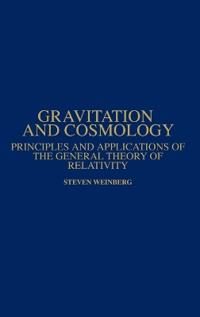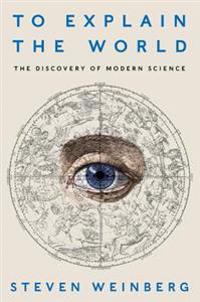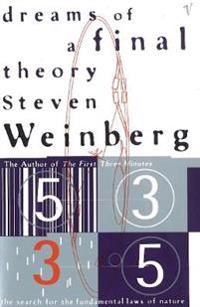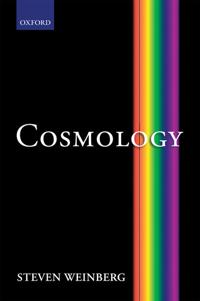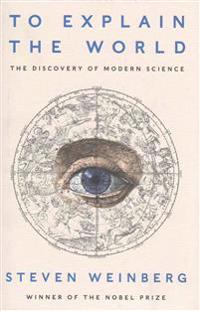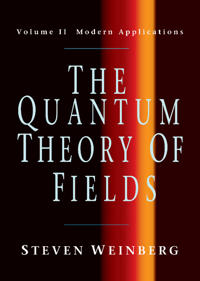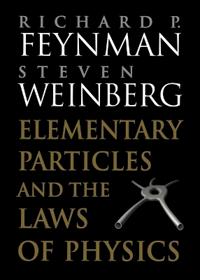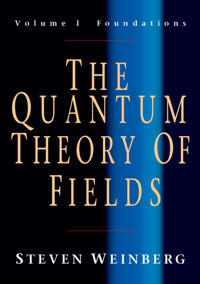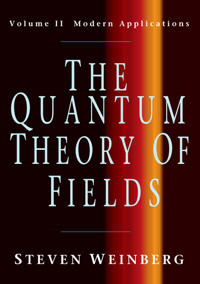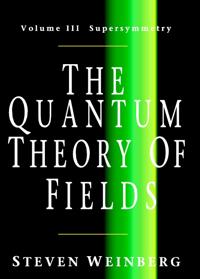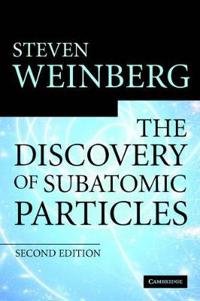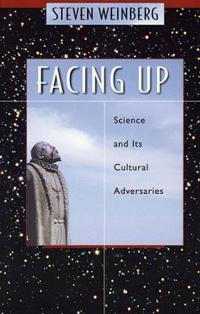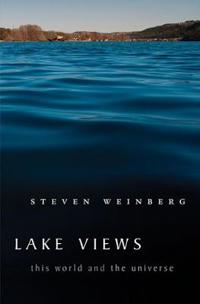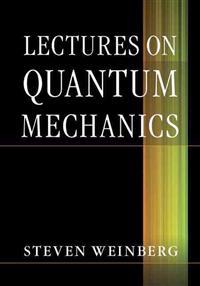Gravitation and Cosmology: Principles and Applications of the General Theory of Relativity (Inbunden)
avSteven Weinberg, Weinberg
ISBN: 9780471925675 - UTGIVEN: 197208To Explain the World: The Discovery of Modern Science (Inbunden)
avSteven Weinberg
ISBN: 9780062346650 - UTGIVEN: 2015-02In this rich, irreverent, compelling history, Nobel Prize-winning physicist Steven Weinberg takes us from ancient Miletus to medieval Baghdad and Oxford, from Plato's Academy and the Museum of Alexandria to the cathedral school of Chartres and the Royal Society of London. He shows that the scientist[...]
Dreams of a Final Theory (Häftad)
avSteven Weinberg
ISBN: 9780099223917 - UTGIVEN: 199309The author's first book, "The First Three Minutes", was about the earliest moments of the universe. This book looks at the smallest and most elusive things making up that universe. It relates the story of this search, specifically the development of the Superconducting Supercollider.[...]
Cosmology (Inbunden)
avSteven Weinberg
ISBN: 9780198526827 - UTGIVEN: 200802This book is unique in the detailed, self-contained, and comprehensive treatment that it gives to the ideas and formulas that are used and tested in modern cosmological research. It divides into two parts, each of which provides enough material for a one-semester graduate course. The first part de[...]
To Explain the World (Inbunden)
avSteven Weinberg
ISBN: 9780241196625 - UTGIVEN: 2015-02In To Explain the World, pre-eminent theoretical physicist Steven Weinberg offers a rich and irreverent history of science from a unique perspective - that of a scientist. Moving from ancient Miletus to medieval Baghdad to Oxford, and from the Museum of Alexandria to the Royal Society of London, he [...]
The Routledge Handbook of Research Methods in the Study of Religion (Häftad)
avSteven Weinberg
ISBN: 9780415718448 - UTGIVEN: 2013-08This is the first comprehensive survey in English of research methods in the field of religious studies. It is designed to enable non-specialists and students at upper undergraduate and graduate levels to understand the variety of research methods used in the field. The aim is to create awareness of[...]
The First Three Minutes (Häftad)
avSteven Weinberg
ISBN: 9780465024377 - UTGIVEN: 199307This classic of contemporary science writing by a Nobel Prize-winning physicist explains to general readers what happened when the universe began, and how we know..[...]
The Quantum Theory of Fields (Inbunden)
avSteven Weinberg
ISBN: 9780521550024 - UTGIVEN: 1996-09The Quantum Theory of Fields, first published in 1996, is a self-contained, comprehensive introduction to quantum field theory from Nobel Laureate Steven Weinberg. Volume II gives an account of the methods of quantum field theory, and how they have led to an understanding of the weak, strong, and el[...]
Elementary Particles and the Laws of Physics (Pocket)
avRichard Phillips Feynman, Steven Weinberg, Richard Phillips Feynman
ISBN: 9780521658621 - UTGIVEN: 199907Perhaps the two most important conceptual breakthroughs in twentieth century physics are relativity and quantum mechanics. Developing a theory that combines the two seamlessly is a difficult and ongoing challenge. This accessible book contains intriguing explorations of this theme by the distinguish[...]
The Quantum Theory of Fields: Volume 1, Foundations (Häftad)
avSteven Weinberg
ISBN: 9780521670531 - UTGIVEN: 200505Available for the first time in paperback, The Quantum Theory of Fields is a self-contained, comprehensive, and up-to-date introduction to quantum field theory from Nobel Laureate Steven Weinberg. Volume I introduces the foundations of quantum field theory. The development is fresh and logical throu[...]
The Quantum Theory of Fields: Volume 2, Modern Applications (Häftad)
avSteven Weinberg
ISBN: 9780521670548 - UTGIVEN: 200505Available for the first time in paperback, The Quantum Theory of Fields is a self-contained, comprehensive, and up-to-date introduction to quantum field theory from Nobel Laureate Steven Weinberg. Volume II gives an up-to-date and self-contained account of the methods of quantum field theory, and ho[...]
The Quantum Theory of Fields: Volume 3, Supersymmetry (Häftad)
avSteven Weinberg
ISBN: 9780521670555 - UTGIVEN: 200505In this third volume of The Quantum Theory of Fields, available for the first time in paperback, Nobel Laureate Steven Weinberg continues his masterly exposition of quantum field theory. This volume presents a self-contained, up-to-date and comprehensive introduction to supersymmetry, a highly activ[...]
The Discovery of Subatomic Particles (Inbunden)
avSteven Weinberg
ISBN: 9780521823517 - UTGIVEN: 2003-09The story of the discovery of the atom's constituents, told by Nobel prize-winning physicist.
Facing Up (Häftad)
avSteven Weinberg
ISBN: 9780674011205 - UTGIVEN: 200305In this volume, Steven Weinberg pursues his principal passions, theoretical physics and a deeper understanding of the culture, philosophy, history, and politics of science. Each of these essays, which span 15 years, struggles in one way or another with the necessity of facing up to the discovery tha[...]
Lake Views (Pocket)
avSteven Weinberg
ISBN: 9780674062306 - UTGIVEN: 2011-11Just as Henry David Thoreau 'traveled a great deal in Concord', Nobel Prize-winning physicist Steven Weinberg sees much of the world from the window of his study overlooking Lake Austin. In "Lake Views", Weinberg considered by many to be the preeminent theoretical physicist alive today, continues th[...]
Lectures on Quantum Mechanics (Inbunden)
avSteven Weinberg
ISBN: 9781107028722 - UTGIVEN: 201211Nobel Laureate Steven Weinberg combines his exceptional physical insight with his gift for clear exposition to provide a concise introduction to modern quantum mechanics. Ideally suited to a one-year graduate course, this textbook is also a useful reference for researchers. Readers are introduced to[...]
The First Three Minutes: A Modern View of the Origin of the Universe (CD-bok)
avSteven Weinberg
ISBN: 9781470890544 - UTGIVEN: 2013-08To Explain the World: The Discovery of Modern Science (Övrigt)
avSteven Weinberg, Tom Perkins
ISBN: 9781494558376 - UTGIVEN: 2015-02In this rich, irreverent, and compelling history, Nobel Prize winning physicist Steven Weinberg takes us across centuries, from ancient Miletus to medieval Baghdad and Oxford, from Plato's Academy and the Museum of Alexandria to the cathedral school of Chartres and the Royal Society of London. He sh[...]

